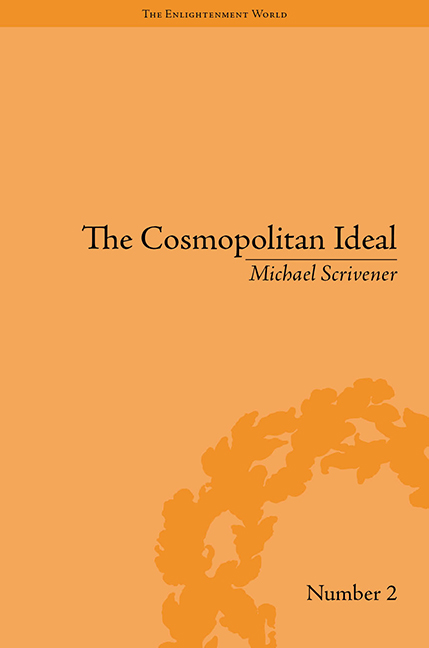2 - Expanding the Public Sphere
Summary
When the classical public sphere – die Öffentlichkeit –grew in the latter part of the eighteenth century, expanding rapidly in the 1790s, the intellectual culture was cosmopolitan in both Paris and London. The public sphere, defined by Jürgen Habermas as ‘the private people, [who] come together to form a public … [to] compel public authority to legitimate itself before public opinion’, has historical, theoretical and literary significance. Almost fifty years after Habermas's pioneering study, there are still questions about the public sphere, its origins, development and usefulness as a critical category. This chapter will clarify some of the historical and theoretical issues connected with the emergence and development of the public sphere, especially as it relates to cosmopolitanism. The most theoretically rigorous deliberations on the public sphere at the very time it was assuming its distinctiveness were by Immanuel Kant, whose most perceptive insights were further deepened much later by Habermas. After the theoretical and historical sections on the public sphere, this chapter turns to two specific examples from the romantic era to illustrate the public sphere both in its expansive mode, and in a crisis brought on by political repression and the contradictions of social class: John Thelwall, the most important public lecturer of the democratic movement of the 1790s, and the Analytical Review (1788–99), perhaps the purest example of Enlightenment cosmopolitanism in the 1790s. The public sphere in Habermas's account consists of literary and political spheres that mediate between private individuals and the state. The literary sphere includes much that is political and the political sphere is permeated with literary meanings, so that the distinction between the two is not absolute but still conceptually useful. Thelwall, one of the few figures who acted in both the bourgeois and plebeian public spheres, was both a popular lecturer and an ambitious poet. Although the Analytical Review was unquestionably a bourgeois periodical, competing for readers with the Monthly Review and the Critical Review, it usually had a respectful attitude toward products of the plebeian public sphere and it was victimized ultimately by the same forces of reaction and repression that destroyed the London Corresponding Society and other institutions of popular radicalism.
- Type
- Chapter
- Information
- Publisher: Pickering & ChattoFirst published in: 2014



